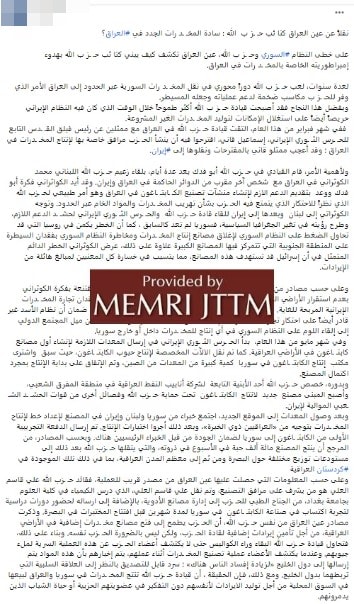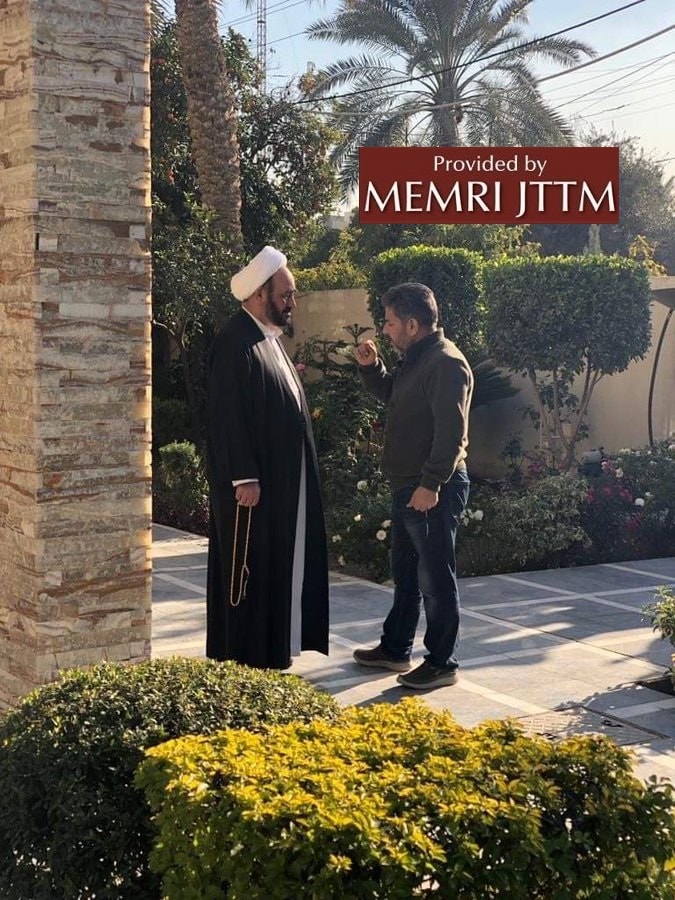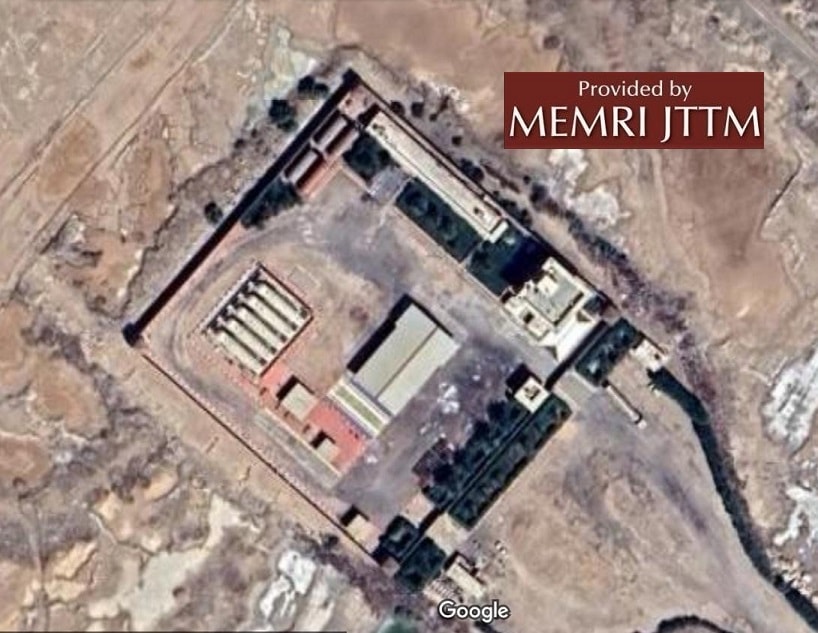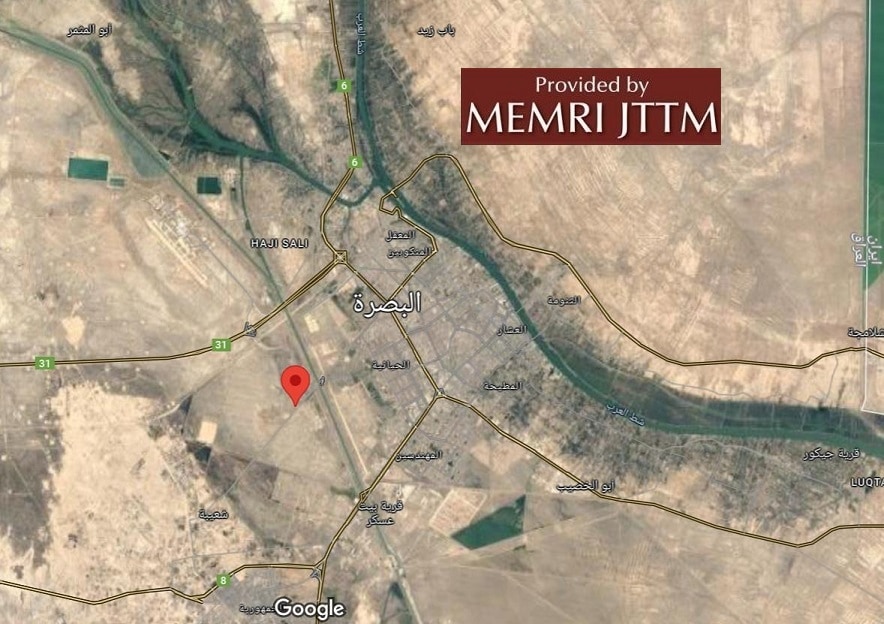The following report is now a complimentary offering from MEMRI's Jihad and Terrorism Threat Monitor (JTTM). For JTTM subscription information, click here.
On January 21, 2024, "Al-Anbar Al-Yawm," a media outlet which opposes Iran-backed militias in Iraq, shared a report by a news outlet, "Iraq Eye," detailing how the Iran-backed Iraqi Hizbullah Brigades militia is building its own "drug empire" in Iraq with the help of Lebanese Hizbullah and Iran's Revolutionary Guard Corps (IRGC). The aim, according to "Iraq Eye," is to monopolize the drug trade in the region.[1]
Years-Long Association With IRGC And Lebanese Hizbullah Multiplied The Militia's Control And Revenues
The report begins by stressing that the Hizbullah Brigades has been playing a pivotal role in the expansion of the network of narcotics between Syria and Iraq for the past few years. The militia is following in the footsteps of the regime in Syria and Lebanese Hizbullah, the report states, by building its own drug empire in Iraq, exploiting the experience it gained and the enormous resources it generated to fund its operations and increase its influence.
The report then highlighted the association between the Hizbullah Brigades and the IRGC's Quds Force, claiming that militia leaders met with envoys of IRGC's Quds Force commander Esmail Qaani in February 2023. At that meeting, Qaani proposed that the militia build its own drug production facilities in Iraq. The proposal reportedly impressed Qaani's representatives, who conveyed it back to the leadership in Tehran.

Hizbullah Brigades' Proposal To Build Drug Factories In Iraq "Impressed The IRGC, And The Execution Was Coordinated By Lebanese Hizbullah"
The report recounts that Hizbullah Brigades' commander, Abu Fadak, also known as Abdul Aziz Al-Muhammadawi, became aware of the significance of the issue, particularly that Lebanese Hizbullah monopolizes the drug trade. Abu Fadak met days later in Iraq with a Lebanese Hizbullah commander, Muhammad Kawtharani. An unnamed person, said to be close to the ruling circles in Iraq and Iran, was also present, according to the report.
During the meeting, Kawtharani, designated by U.S. Department of the Treasury as a Specially Designated Global Terrorist in 2013,[2] supported the idea of building drug factories in Iraq, and promised to provide the Hizbullah Brigades with the necessary support to establish manufacturing facilities in Iraq to produce Captagon, a highly addictive meth-like subject. Kawtharani traveled to Lebanon, and then to Iran to meet with Lebanese Hizbullah leaders and IRGC officials to mobilize the necessary support, and to "present his vision of a changing political landscape" in Syria. According to Kawtharani, there are new threats to Syria from Russia, which may pressure the regime in Syria to close production factories. This would mean a loss of control of the southern region where large factories are located, as well as an "ever-present danger" that Israel might target these factories, "causing everyone involved to lose enormous amounts of revenue."
SUPPORT OUR WORK

The report went on to cite sources within the Hizbullah Brigades saying that the IRGC command was aware of the likelihood of instability in Syria and the ensuing potential loss of a highly profitable trade. These sources were convinced that the Syrian regime was incapable of monopolizing the regional drug trade, the report asserts.

Muhammad Kawtharani (left) and SDGT Secretary-General of The Imam Ali Brigades Shibl Al-Zaydi (right) in Baghdad's Al-Jadiriyah Neighborhood.[3]
IRGC Approved New Factory, Sent In Equipment From Syria "Purchased In Large Quantities From China"
Further, the report claimed that in May 2023, the IRGC began sending the necessary equipment to establish the first Captagon factory in Iraq, including machines and equipment, which the Syria office had previously purchased in large quantities from China. "It was agreed to begin production as soon as the factory was completed."
The report stated that the Hizbullah Brigades chose to locate the facility in one of the buildings of Iraq's Oil Pipelines Company in the Mafraq area. This would become the new factory for the production of Captagon under the protection of the Hizbullah Brigades and other Iran-backed factions of the Popular Mobilization Units (PMU).
After receipt of equipment, the report said, experts from Syria, Lebanon, and Iran met at the factory to set up a production line under the guidance of "experienced" Iraqi individuals, and to conduct production trials. The first batch of Captagon produced in Iraq was sent to Syria for quality assurance.
The Hizbullah Brigades Will Distribute Production To Warehouses In Basra, Among Other Cities, "Including Kurdistan"
The factory is expected to produce a maximum of 100,000 pills per week. The militia will later transport the pills to distribution warehouses around Basra, and from there to many Iraqi cities, including those in Iraqi Kurdistan.
According to information obtained by "Iraq Eye," the manufacturing facilities in Iraq will be managed by commander Ali Qassem Al-Ali, who will attend a two-month courses in Syria before the opening of laboratories in Basra.
The report further claimed that the Hizbullah Brigades militia aspires to open additional factories in Iraq to secure additional revenues for the leadership, "but not necessarily the militia itself," noting that the leaders try to stay behind the scenes so that militia members know nothing about this self-enriching operation.


[1] Facebook, January 21, 2024.
[2] Rewardsforjustice.net, April 10, 2020.
[3] Twitter, April 12, 2020.




